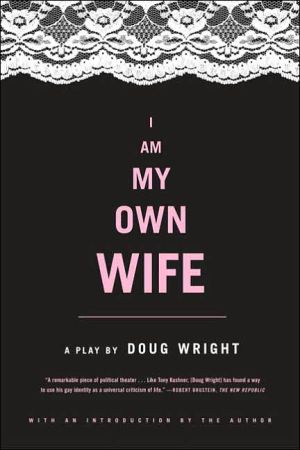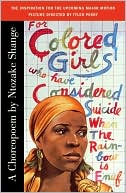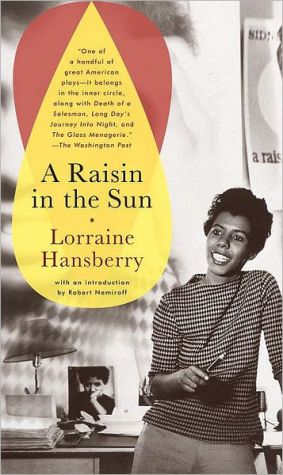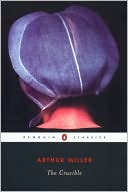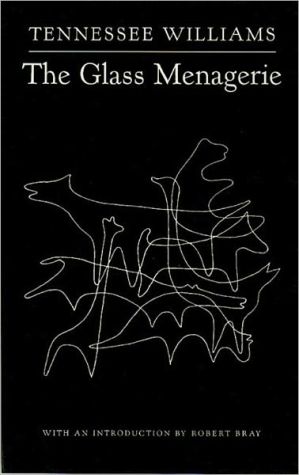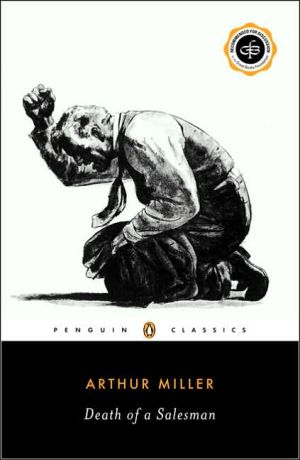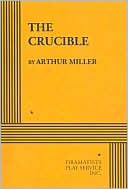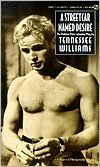I Am My Own Wife
I Am My Own Wife is the winner of the 2004 Pulitzer Prize for Drama.\ From the Obie Award-winning author of Quills comes this acclaimed one-man show, which explores the astonishing true story of Charlotte von Mahlsdorf. A transvestite and celebrated antiques dealer who successfully navigated the two most oppressive regimes of the past century-the Nazis and the Communists—while openly gay and defiantly in drag, von Mahlsdorf was both hailed as a cultural hero and accused of colluding with the...
Search in google:
Winner of the 2004 Pulitzer Prize for DramaFrom the Obie Award-winning author of Quills comes this acclaimed one-man show, which explores the astonishing true story of Charlotte von Mahlsdorf. A transvestite and celebrated antiques dealer who successfully navigated the two most oppressive regimes of the past century-the Nazis and the Communists—while openly gay and defiantly in drag, von Mahlsdorf was both hailed as a cultural hero and accused of colluding with the Stasi. In an attempt to discern the truth about Charlotte, Doug Wright has written "at once a vivid portrait of Germany in the second half of the twentieth century, a morally complex tale about what it can take to be a survivor, and an intriguing meditation on everything from the obsession with collecting to the passage of time" (Hedy Weiss, Chicago Sun-Times).A.P.I AM MY OWN WIFE revels in a particular time and place, but it is more than a historical document. The play is a vivid portrait of a unique person whose ability to endure has been turned into a highly theatrical journey.
I Am My Own Wife\ ACT ONE(The French doors at the rear of the room open, and standing before us is CHARLOTTE VON MAHLSDORF. \ She is, in fact, a man, roughly sixty-five years old. CHARLOTTE wears a simple black housedress with peasant stitching, a kerchief on her head, and an elegant strand of pearls. \ She gazes at the audience for a moment; the tiniest flicker of a smile dances on her lips. Then, surprisingly, she closes the doors as quickly as she appeared, and is gone. \ A pause. The stage is empty again. \ In a moment, the doors reopen. CHARLOTTE reappears. Cradled in her arms is a huge antique Edison phonograph, complete with an enormous horn in the shape of a flower. She grins, satisfied, and sets the phonograph on a small plinth. \ She steps back for a moment to admire the music machine. When she speaks, it's in broken English, but thecadences of her voice are delicate; there's a musical lilt to her inflection. She has a German accent.)A LECTURE ON THE PHONOGRAPHCHARLOTTE: Thomas Alva Edison was the inventor of the first talking machine of the world, in July of 1877. And, you see, the record is not ein Plattenspieler; nein. It is a cylinder made of wax. And this record is working with a hundred and sixty revolutions per minute, and is playing four minutes long. And the record is made by the National Phonograph Company in Orange, New Jersey. At one time, I had over fünfzehntausend cylinders. \ (CHARLOTTE indicates a painting of the Edison phonograph with an attendant dog, its ears cocked to listen.) \ And you see on the wall a painting: the dog Nipper, His Master's Voice. The most famous trademark in all the world. Next month, this phonograph will be half a century old. \ (She begins to turn the handle on the phonograph, readying it for play.) \ For fifty years, I've been turning its crank.The loudness depends on a big or a small horn. Metal horns are better for bands and the voices of men. And thewooden horns, they are better for the strings and the voices of the female. Die Sopranistin. And Edison's phonograph has in the needle a little sapphire. \ (She plucks a tiny disposable needle from a drawer concealed in the phonograph. She holds it up to the light, and says emphatically): \ Nicht Diamant, nur Saphir. And when it grazes the record it sounds so nice. \ (She installs the needle on the arm, then delicately places the arm on the wax cylinder. The machine begins to play—an old German waltz, scratchy and exquisite.) \ In the Second World War, when the airplanes flew over Mahlsdorf, and the bombs were coming down, I played British and American records. And I thought, They can hear in the airplanes that I am playing Edison records. I thought, If they hear me they will know I'm their friend. \ (A pause as CHARLOTTE revels in the music. \ Then—abruptly—the music stops. CHARLOTTE is supplanted by someone else, a thirty-something newsman named JOHN MARKS. \ JOHN has the intrepid spirit of a Saturday serial matinee hero. His voice has a Texas twang. His masculineedge stands in sharp contrast to CHARLOTTE's demure nature.)THE WORLD FLIPS UPSIDE DOWNJOHN: From the desk of John Marks Bureau Chief, Berlin U.S. News & World Report September, 1990. \ Dear Doug,It's a funhouse over here. You can't imagine. The Berlin Wall falls and the world flips upside down.All the great and powerful leaders are turning out to be clowns. Erich Honecker, one of the most feared and respected dictators in the world, has in one year become a fugitive. He wanders around the grounds of a Soviet military hospital in his pajamas. Secret police files kept on East Germans for four decades are being released, and it turns out husbands spied on their wives, children on their parents, dissidents on each other. \ (He steps forward, and adopts a more confidential tone.) \ Now, in the midst of all this craziness, I've found a true character; she's way up your alley. (And, believe me, I use theterm "she" loosely.) I'd love to interview her—make her my first official article for U.S. News & World Report. But I'm afraid my editor will say her story's too extreme. Still, I think she may well be the most singular, eccentric individual the Cold War ever birthed.Have I piqued your interest? \ Love, John \ (Another abrupt shift. DOUG is a playwright, in his mid-thirties, with an eager-to-please manner and a somewhat mellifluous voice.) \ DOUG: "Piqued" indeed.August 8, 1992. I've been in Berlin for two days now. I'm sleeping on John's floor. Today we went to the Reichstag. There were demonstrations, because Cristo wants to cover it in pink tulle. Now we're in John's car, headed toward the east. \ (DOUG glances out an invisible window, as though he were riding in a car with JOHN.) \ Through the windshield, I can see fragments of the infamous wall still standing. Slapped onto one in bold paint are the words "Art Survives."A sign whizzes past: "Mahlsdorf." It's a grim place; vastapartment complexes rise like cement gulags. Then we turn a corner, and it's like we've turned back the clock two hundred years or more. Standing before us is a huge, weather-beaten mansion made entirely of stone. About a hundred tourists are gathered at the front door. Suddenly, with a creak, it opens. \ (DOUG morphs into CHARLOTTE. She fingers her pearls. Music from an Edison Amberol wafts through the air.)DAS GRÜNDERZEIT MUSEUMCHARLOTTE: Wilkommen in meinem Gründerzeit-Museum. Welcome to my Gründerzeit Museum.Here, people can always come to see my collection. Everything from die Gründerzeit; this was the period in Germany between 1890 and 1900. Wie soll ich sagen ... "the Gay Nineties." Petroleum lamps and vases, gramophones, records, matchboxes, telephones, ink wells, Polyphones, pictures, credenzas, bureaus, and, of course, clocks.No matter what people want to see or hear, I'll show or play it. Some people, they come to see me. Ich bin Transvestit. But soon they look at the furniture.Folgen Sie mir bitte, ja? \ (CHARLOTTE pulls the doors of the museum open.) \ CHARLOTTE: This old door? It is not original, nein. I saved it from a house on Prenzlauer Street. Before the Russians blew up the houses, I took such things. \ (As CHARLOTTE enters the museum, DOUG addresses the audience directly, recounting the adventurous step into the unknown.) \ DOUG: She ushers us into the foyer of the museum. The ceilings are high, at least fifteen feet. We're huddled together like schoolchildren. For the next two hours—room by room, object by object—she guides us through the house. \ (CHARLOTTE seats herself at a small, ornately carved wooden table. From beneath it she pulls a velvet jewelry box. She places it squarely in the center of the table. With great ceremony, she opens it.) \ CHARLOTTE: Come in, please. There is room for everyone, yes? \ (CHARLOTTE pulls a, small, lovingly carved, elegantly furnished doll dresser from the box. She holds it sweetly in her palm and approaches the audience, holding it out for inspection.) \ CHARLOTTE: Here we have eine alte Anrichte. A cupboard, yes? Und dieses Möbelstück is made of oak, in the style ofneo-Renaissance. But this was not handmade; this was factory-made. So-called mass production. And the trim? People would tear it off; they would burn it. They did not like the scalloped wood, the tiny turrets, the ornamental molding. "Too old-fashioned! Too difficult to dust!" But me ... I had a feeling for such things. And so I saved it. \ (She removes a tiny lacquer cabinet of lighter wood.) \ Und hier haben wir ein Vertiko. An old sideboard, ja? It was designed and built by ein Tischlermeister, Otto Vertiko, in achtzehnhundertfünfundneunzig. \ (She pulls out a tiny bust on a pedestal.) \ And this is a bust of Wilhelm II, the last German emperor. During the Second World War, they wanted to melt it down for munitions. And so—with my school friend Christian—I pulled it from the bonfire, yes? It looks like a bronze bust, but it is only zinc. Galvanized. Not so expensive. \ (Next, a miniature clock with an open, suspended pendulum.) \ In French, this clock is called "regulatour." Because it is regulating the time. And auf Deutsch we say "Wandulir", oder "Freischwinger." Because the pendulum isn't encased in a glass box; it's freely suspended. Of course, Americansoldiers thought they were nice. They didn't have them in the USA. It made a nice gift to bring to the little wife at home, ja?To wind such a clock, you need a key. And I collected, when I was a child, many keys. Keys for desks. Keys for doors. Keys with no locks; castaways. These I still carry in my apron, ja? \ (She extracts a tiny gramophone.) \ And here we have an old gramophone. Nicht phonograph, Sondern gramophone. Instead of cylinders, round plates, flat, mit grooves. At one time I had many such records—Mendelssohn and Offenbach. But during the time of Hitler it was very dangerous to possess music from Jewish composers. And so I thought, I must save these records. And so I took old paper—brown grocery paper—and I cut it in the shape of labels. And I wrote with ink false titles: Aryan polkas and waltzes, yes? And I glued them onto the records, for safety. And when the war was over I took a sponge and with water I took the labels back off. And then the Hebrew titles with the dog Nipper were visible again. \ (A dainty little kitchen contraption, affixed to the edge of a tiny cutting table.) \ The kitchen is as it was for a housewife of 1890 in Berlin. This machine is for pitting the stones of cherries. \ (She regards the tiny room—now spread out before her on the table, like the parlor in a dollhouse—for a moment.) \ When families died, I became this furniture. When the Jews were deported in the Second World War, I became it. When citizens were burned out of their homes by the Communists, I became it. After the coming of the wall, when the old mansion houses were destroyed to create the people's architecture, I became it. \ (A pause, and then): \ I am like a maidservant in this house; you must clean and clean, because the dust is growing! And the dust is looking like the dust of 1890! And you must put it away! I worked thirteen years with two hands to repair this old house. Each tile on the roof, I know. Each plank of the floor, like an old lover. In August 1993, the collection exists at the museum in this house for thirty-three years. \ (She holds up a small collection box.) \ And now you may make eine Spende. A small contribution. We have a cash box. Each person, what he or she thinks. \ (She curtsies, then transforms into DOUG.)POPPING THE QUESTIONDOUG: From the desk of Doug Wright New York City \ Dear Charlotte von Mahlsdorf,Recently, while in Berlin, I visited your museum. My childhood friend John Marks and I were awestruck by your furniture collection and your astounding array of Edison phonographs.But I must confess, I was no less impressed by the mere fact of your survival. I grew up gay in the Bible Belt; I can only begin to imagine what it must have been like during the Third Reich.The Nazis, and then the Communists? It seems to me you're an impossibility. You shouldn't even exist. So here's the presumptuous portion of my letter. I would love the opportunity to continue to study your life in order to write a play about you. With your support, I can apply for funding, fly back to Berlin, and begin to write in earnest. As far as grant applications go—forgive me—but from where I sit, you're a slam dunk.Even if you reject my proposal, please know that the morning you shared with us was one of the most memorable of my life. Thank you for your kind attention, and I look forward to hearing from you. \ Sincerely, Doug Wright \ (CHARLOTTE puts the letter down; she pauses, considering the request.) \ CHARLOTTE: Dear Mr. Wright,Yes. Perhaps it is possible for you to make a play. Maybe you will visit Berlin after Christmas. \ Sincerely, Charlotte von Mahlsdorf \ (DOUG, ecstatic, springs into action, giving the thumbs-up sign; they're in business now! He circles the stage, reciting into his mini recorder.) \ DOUG: Testing. Testing one-two-three. Testing.Tape One. It's January 20, 1993. I'm headed to the Gründerzeit Museum in Mahlsdorf for my first official interview with Charlotte von Mahlsdorf. With me, John Marks. \ (He sits. On one side, presumably, is JOHN MARKS. On the other, CHARLOTTE.)TRANSLATING TANTE LUISEDOUG: John—if you could, please—would you ask Charlotte about her given name? Her legal name? JOHN: (his Texas twang evident) Was war Ihr Geburtsname?CHARLOTTE: Mein Geburtsname war Lothar. Lothar Berfelde.JOHN: It was Lothar—DOUG : Yeah, yeah. I got that. And next, could you ask her when she knew ... the precise time ... that her name ought to be Charlotte? JOHN: (even sharper on the ear this time) Und wann wussten Sie, dass Ihr Name Charlotte hätte sein sollen? \ (CHARLOTTE decides to put an end to this auditory torture.) \ CHARLOTTE: I can tell it in English, yes? \ (JOHN and DOUG exchange a look. CHARLOTTE takes over the telling of the tale.) \ CHARLOTTE: Meine Tante Luise was working on an estate in East Prussia, and she raised horses. On a large farm. And since she was fifteen years old she never wore ladies' clothes.No.Only boots. And jodhpurs. The clothes of a land inspector, and not a fine lady. \ (She gives a long, knowing look to punctuate that thought. Then she continues.)And so I was coming in August in 1943 to East Prussia and I found in her closet clothes. Girl's clothes. And ... \ (She whispers with an almost erotic intensity.) \ ... I ... put ... them ... on. \ (CHARLOTTE steps before an imaginary mirror. She gazes into it as if she were looking at herself—truly examining herself—for the first time. And she's delighted by her image in the glass. She turns, raising her skirt as if it were an exotic fan. \ Suddenly she's stricken with a look of terror. She sees another reflection, looming behind her.) \ And my aunt was coming into the room, and I was standing there, and she looked at us in the mirror, and then she said: \ (CHARLOTTE becomes TANTE LUISE, with a stirring alto voice.) \ TANTE LUISE: Weisst du, mit uns beiden hat die Natur sich einen Scherz erlaubt. Du hattest ein Madchen werden mussen und ich ein Mann! \ (She repeats the phrase-eloquently-in English.)Did you know that nature has dared to play a joke on us? You should've been born a girl, and I should've been a man! \ (TANTE LUISE morphs back into CHARLOTTE.) \ CHARLOTTE: And there was—on the bookshelf—a book. And meine Tante took this book down and handed it to me. The binding, it was blue. And I opened it. And on its Titelbild— "frontispiece"—"Die Transvestiten, by Magnus Hirschfeld." Und ich spürte eine Gänsehaut ... über meinen Rücken kriechen. I felt a shiver down my spine. And meine Tante Luise said, "Read." \ (CHARLOTTE begins to read.) \ In each person, there is a delicate balance of male and female substances. Just as we can't find two matching leaves from the same tree, it is scientifically impossible to find two human beings whose male and female characteristics match in kind and number. \ (She passes the book to DOUG.) \ CHARLOTTE: (to DOUG) Read. \ (Now he reads from the text.) \ DOUG: And so we must treat sexual intermediaries—those individuals who defy the ready classification of "man" or "woman"—as a common ... utterly natural ... phenomenon? \ (He looks to CHARLOTTE for approval; she nods and says): \ CHARLOTTE: Yes. And meine Tante said:TANTE LUISE: This book is not just any book. This book, it will be your Bible.CHARLOTTE: (to DOUG, lightheartedly) Möchten Sie ein paar Spritzekuchen? \ (DOUG ducks aside, his invisible tape recorder primed, and makes a few private observations.)THE GIVEAWAYDOUG: Charlotte's just slipped into the kitchen, to bring us some Kaffee und Kuchen. I brought a camera, but I'm too shy to ask her to pose ... I'm afraid she'll think I've only come to gawk. So I wanted to record a quick ... visual ... an impression.She's about five eight, maybe a hundred and seventy pounds. Sixty-five years old. Doesn't look like a drag queen at all. No makeup. I asked her about that; she says she "doesn't need it." She's got piercing eyes—really smart eyes—and a sly little crooked smile. She still wears her own hair, which iswhite, goose-feather white, cut in—I guess you'd call it a pageboy. She's got on a black peasant dress, a string of pearls, and heavy black shoes. Orthopedic shoes.She doesn't have breasts—not really—but just enough paunch to sort of enhance the impression.But her hands are big, and thick. The hands of a woodworker. A craftsman. Definitely a man's hands. \ (DOUG raises his own hands as if they belonged to CHARLOTTE. As he does so, he transforms back into her. \ CHARLOTTE puts another Edison Amberol on the phonograph, and the room fills with the sound of nostalgia.)ARE YOU A BOY OR A GIRL? CHARLOTTE: And the last days of the world war were the most dangerous time for me because I refused to carry a weapon or to wear a uniform. Instead, I had my hair long and blond and my mother's coat, and the shoes of a girl. And so I was—in Germany we say "Freiwild." Like the Jews, we were wild game.Berlin was destroyed. I was walking about—the houses were all broken—and the street was full of rubble. Yes. And I would turn a street, and there was coming Russian airplanes with the splatter bombs—so close you could see the pilot with the helmet and the goggles. And this was verydangerous, because wherever you were standing the splatter bombs exploded into the earth. Pieces went everywhere. There was no escape.And there was—on the corner—standing an air-raid shelter. And so I went inside. And I was sitting there maybe half an hour.And I could hear the bombs, and the old building was shaking. And suddenly the door opened, and in came four SS officers. Infantry police. Die Kettenhunde.And they were looking for boys and men and old men which were hiding, without weapons. And so they dragged me up to the police station. And I had to stand outside against the wall.The SS men were standing four, maybe five meters away. \ (She becomes the SS OFFICER, and plays out the scene in real time.) \ SS OFFICER: (doctrinaire) All deserters shall be shot. CHARLOTTE: And they wanted to shoot me. I looked down—I didn't want to see them shoot. I thought, I'll wait until I feel it. But when I looked to the ground I saw the boots of a commander. \ (Her gaze rises as she sizes up the COMMANDER with both awe and dread.) \ And he looked at me.SS COMMANDER: Are you a boy or a girl? \ CHARLOTTE: And I thought, If they shoot me, what's the difference between a boy and a girl, because dead is dead! \ (She becomes a child and answers.) \ YOUNG LOTHAR: I am a boy.SS COMMANDER: How old are you, then? YOUNG LOTHAR: Sixteen.CHARLOTTE: And he turned around to face the execution squad commander.SS COMMANDER: (with some measure of self-contempt) We are not so far gone that we have to shoot schoolchildren.CHARLOTTE: And this was my salvation. \ (CHARLOTTE lifts the needle off the wax roll and becomes DOUG.)LISTENINGDOUG: My dear Charlotte,Enclosed please find two antique cylinders. Your favorite: John Philip Sousa. El Capitan and Semper Fidelis. They're Blue Amberols, so you should be able to play them on your Edison Standard.I, meanwhile, am listening to our interview tapes every chance I get. On the treadmill. In the car. I've also started reading the works of Magnus Hirschfeld, and studyingGerman history since the time of Wilhelm II. Still, all I can think about is the story of your life. \ (Then, with feeling): \ You are teaching me a history I never knew I had. Thank you. \ (a pause) \ Tape Seven. January 26, 1993.CHARLOTTE: Heute habe ich einen Spitznamen fur dich.DOUG: A nickname? For me? CHARLOTTE: "Thomas Alva Edison." \ (CHARLOTTE smiles inscrutably, then sits.) \ You have a talking machine, too, yes? Only his was made of tinfoil with a tiny stylus, and yours ... yours is a ... \ (She leans in to read the inscription on DOUG's tape recorder.) \ ... "Sony Microcassette Recorder with voice activation and automatic playback." Hmm.DOUG: (grinning) Charlotte's boyhood. Continued from previous tape. \ (CHARLOTTE begins to speak.)VATERLANDCHARLOTTE: When I was a baby and then a little child—DOUG: Can I interrupt you for a moment, and play that back? I'm not sure—the batteries—CHARLOTTE: Hmm. Yes, of course. \ (DOUG futzes with the tape recorder.) \ TAPE RECORDING: (the voice of CHARLOTTE) "When I was a baby and then a little child—"DOUG: We're good. Go ahead.CHARLOTTE: My father was a Nazi. \ (DOUG reacts.) \ And he was brutal. And he was for militarism. And the years of marriage for my mother were a moratorium. My mother, she wanted to sich scheiden lassen. Get a divorce. And my aunt said one day to me:TANTE LUISE: If your father beats your mother once more, she could die.CHARLOTTE: And it was luck for us that in 1943 in Berlin the government decreed the evacuation of mothers with children, because of the air raids. And so my mother took the children to East Prussia, to the house of my aunt. And at that time we became good friends. Because my aunt was a lesbian, and I was the same.And one day I was cleaning the furniture, and I lookedthrough the window and it was snowing, and there was coming in the snow a man with a hat and a bag and I became horribly scared because I realized this was my father.And my aunt and my father had a very heart discussion. And my aunt said:TANTE LUISE: Your wife really wants a divorce from you.CHARLOTTE: And suddenly my father pulled out a revolver, and pointed it at my aunt. And he said:HERR BERFELDE: One more word and I'll shoot you.CHARLOTTE: But my aunt took her revolver from the desk and said:TANTE LUISE: I'll count to three, and then you better be out the door! Otherwise, I'll shoot.CHARLOTTE: And she said:TANTE LUISE: ... three!CHARLOTTE: Und die Kugel durchschlug das Holz und blieb in der gegenüberliegenden Tür stecken—the bullet went through one door and into the next, where it lodged, and my father returned to Berlin. And then I asked my aunt, and she said:TANTE LUISE: Yes, of course. It's a shame I didn't kill him.CHARLOTTE: Then, on the twenty-sixth of January 1945, my mother got a letter saying the government was taking over our house for Berliners who had lost their homes in the bombing. And so I went with the train to Berlin because I had to rearrange the furniture. To make room for the refugees. \ (CHARLOTTE seats herself at the table of antique models; it now suggests the house of her childhood, rendered inminiature. The scene seems to play out—doll-sized—in front of her.) \ And so I was coming into our house, and my father was living there, of course. And one evening, maybe it was the second or third day. No, I think it was a week—it was in the first week of February 1945—and one evening my father said to me:HERR BERFELDE: This is the hour I ask you, Are you for me or your mother? Do you stand beside her or me? CHARLOTTE: I was fifteen years old. And I asked him, "Aren't you ashamed of the way you've treated my mother?" And he said:HERR BERFELDE: I'll shoot you down like a dog, and then I'll go to East Prussia and shoot your mother and your sister and your brother.CHARLOTTE: And I thought of the words of my aunt. And I knew that my father would do this.He locked me in the bedroom by turning the key. Because it was war, I could hear the Allied bombs coming in the night. And then under the bed I saw a large wooden utensil used to mix cake—wie sagt man—a rolling pin. And I thought, I can take this as a weapon.I wanted to sneak out the door, but it was tightly locked. But even then I had in my pocket ... keys. So I very carefully opened the door, and I was going in the next room.It was very dark, except for a little moonlight which was shining. And I saw my father. He was lying on the sofa in the dining room, and his gun lay on the chair next to him. And I saw the chair. I saw the pistol. And, in that moment, theclock—we had a Westminster clock—and the clock was chiming, and I saw my father's hand; he was reaching for his weapon. And in this moment I began beating him. \ (She says with sudden ferocity): \ Eins! Zwei! Drei! Vier! Fünf! \ (A pause. She dissociates herself for a moment, becoming oddly contemplative.) \ Hmm. Yes.And the next day the Criminal Police came. And they asked me for the motive. And I told them. And when I was arrested they brought me before the Youth Justice. And I was sentenced to the Youth Prison in Tegel. Four years' detention. And when they took me to the jail my mother was there. And we looked at each other in the eyes, and we knew that we were finally free from the monster. \ (CHARLOTTE bolts up from the table and becomes DOUG, frantically scribing a letter.)AUF DEUTSCHDOUG: Oh, John!I'm in way over my head. To kill: "töten, tötete, hat getötet." Christ, this language doesn't make any sense.I'm still winding my way through Die Transvestiten. Sigh. In some sentences I can barely discern the verb. And the vocabulary I'm learning is ... well ... so specific. Yesterday in German class I made an ass of myself. The teacher told us to make "small talk." I froze, couldn't remember a single phrase. So I blurted out a few new words I'd translated the night before: "Hi, ich bin Doug, und ich trage schwarze Spitzenunterwäsche." "Hi, my name's Doug, and I'm wearing black lace panties!"The whole class just stared at me. Except for this one guy named Morris, who offered to take me shopping. Maybe I should try reading something else? \ Love, Doug \ (Once again, DOUG readies an interview tape for CHARLOTTE.)DURCH DIE LUFTDOUG: Tape Nine. March 5, 1993. \ (DOUG practices a few innocuous lines of German.) \ "Guten Abend, Charlotte. Und wie geht es Dir heute? Wie geht es Ihnen heute?"(He appears at CHARLOTTE's door. He greets CHARLOTTE in her native tongue.) \ Guten Abend, Charlotte.CHARLOTTE: Guten Abend.DOUG: Ich habe Deutsch gelernt, um Dein phantastisches Leben besser zu verstehen.CHARLOTTE: Excuse me? DOUG: Jetzt sollen wir Deutsch sprechen, ja?CHARLOTTE: You are learning to speak German? DOUG: Ein bisschen, ja. Ich habe mit Berlitz studiert.CHARLOTTE: You speak German. Me, English. I wear your clothes, and you wear mine.DOUG: Als das Ende des Kriegs kam, waren Sie noch im Gefängnis?CHARLOTTE: The Youth Penitentiary at Tegel? Nein. A miracle allowed me to escape, yes? I was serving my sentence, sitting on a cot brushing my hair with an old ivory comb from meine Tante. And I heard a guard cry in the hallway:PRISON GUARD: The Russians! They're flying over our roof!CHARLOTTE: And it was true! Soon the bombs began to fall!The walls, they toppled down like sand castles in the tide. And the guard cried, "Run!" And so I picked up my blanket and my alarm clock, and I ran. I ran. I ran. Through the iron gates. Past the ruins of the old Jewish synagogue. And I saw on the street the large Russian tanks. And behind the tanks were coming horses with painted wagons. The Allies were coming to Berlin. And then there came a coach with theofficers! Decorated. Yes, yes. Russian soldiers, and they were giving loaves of bread to the people!And it was spring! And the birds were singing in the trees! And it was an awful war.EINE SPENDE(A telephone rings: short, European tones. It rings again. And again.) \ ANSWERING MACHINE: (the voice of JOHN) "Sie haben die Wohnung von John Marks erreicht. Bitte hinterlassen Sie eine Nachricht nach dem Pfeifton."DOUG: Are you there? Hello? Anybody home? \ (a protracted beep) \ DOUG: ... Christ, pick up, pick up, pick up ... \ (JOHN picks up.) \ JOHN: (groggy) Huh? DOUG: John? JOHN: Doug? DOUG: Listen, I've run out of grant money, so I'm canceling my May trip. But all is not lost—I've decided to sell my car.JOHN: You ever heard of time zones? It's four fucking a.m.DOUG: It's an '86 Honda Civic, and I think I can get aboutthree thousand dollars for it. That should finance at least a month overseas, maybe more—JOHN: Whoa, whoa, whoa. You're gonna sell your car? Don't you think you're going a little loopy? DOUG: (a burst of frustration) John! ... (impassioned) Don't you see? She doesn't run a museum, she is one! The rarest artifact she has isn't a grandfather clock or a Biedermeier tallboy. It's her. (in slow, measured tones) So, please. If I come in June, can I still crash on your floor? \ (A pause, and then DOUG speaks into his recorder, triumphant.) \ Tape Fifteen. June 20, 1993. \ (CHARLOTTE smiles enigmatically, and gestures for DOUG to follow.) \ CHARLOTTE: Careful—you must watch the stairs. Today you follow me at your own risk. I show you das Geheimnis—the secret—of meinem Gründerzeit Museum. \ (DOUG obliges.) \ DOUG: (into tape) Charlotte's disappearing down a series of steps; I guess I'm supposed to go down after her. Christ, it's steep. Now we're in the basement, I think, of the house. It's dark. She's lighting a gas lamp. \ (DOUG looks about the room in wonder.) \ Holy shit. It's huge. Old-fashioned, rough-hewn tables on wrought-iron stands. Cane-back chairs. There's an enormous bar, made of oak, stocked high with glasses, liquors, and—it's porcelain, I can't quite tell, but it might be an ancient beer pump.MULACK-RITZECHARLOTTE: Welcome to die Mulack-Ritze. An old tavern from the yesterday.DOUG: The walls are mottled and old. Signs everywhere. There's one, written in thin script on yellowed paper:CHARLOTTE: "Prostitution Is Strictly Forbidden! At Least, According to the Police."DOUG: On a placard in bold type:CHARLOTTE: "Tanzen ist Verboten." "Dancing is forbidden.But we had this old phonograph—mit einem Blumentrichter—and we would dance in the back, ja?A long time ago, this old bar was sitting in the barn district of Berlin on Mulackstrasse, number fifteen. From the time of the Emperor Wilhelm II, it was a restaurant for gays and lesbians. The owners wanted homosexuals because they didn't get drunk, they didn't fight, and they always had money to pay for the bill.At this very table haben Bertolt Brecht, Marlene Dietrich,the sexologist Magnus Hirschfeld, und the actress Henny Porten alle gesessen, ja? This table, he is over one hundred years old. If I could, I would take an old gramphone needle and run it along the surface of the wood. To hear the music of the voices. All that was said.Minna Mahlich, she was the barmaid, ja? And in 1963 she came to me and she said:MINNA MAHLICH: The Kommunisten, they want to close us down. Unsere Geschichte ist dekadent, ja? Our history is decadent. We have only one day. And then the bulldozers.CHARLOTTE: And I thought, That is not good.So I bought this furniture—I paid a little bit of money—and I bought it for this museum here. Everything—every glass—is original, ja? I took it all with me here for safety and I hid it in meinem Keller. And the next day the Russians came, and the old bar on Mulackstrasse, they broke it down.And then came the wall. And for us here in Eastern Berlin it was finished, gay life. The bars, closed. Personal advertisements in the newspaper, canceled. No place to meet but the tramway stations and the public toilets. We were not supposed to exist. Persona non grata.So I thought to give homosexual women and men community in this house. Yes. It was a museum for all people, but I thought, Why not for homosexuals? So we met here—in die Mulack-Ritze—on the Sunday afternoons. And sometimes in front of the crowd Minna would run a finger along the bar, and when it came up black with dust, she'd cry: \ MINNA MAHLICH: Charlotte, you pig! You haven't cleaned!CHARLOTTE: And I'd tell the visitors, "This is a historic moment! This is Minna Mahlich, the last owner of the Mulack-Ritze." And the people would all clap and laugh.And there was over the bar an attic. When a boy or girl met a man, and wanted to go upstairs, they could. Two men, two girls, a boy and a girl—it didn't matter. And they'd go into this room. A divan, a sofa, a chaise longue, a bed. A screen separated each space. Every piece of furniture was always in use. A pair in every free seat!And anyone with an interest in sadomasochism, whether it was two or four or six, could have the room to themselves for a few hours. Whips and things to beat on the behind.And the Stasi—the Communist secret police, the most feared government spies of all the world—was coming, and they were looking in the windows, and they were saying, "What's this?" So what could I do? I painted all the windows black. \ (DOUG speaks reverently-in hushed tones-into his own recorder.) \ DOUG: When the wall falls, Charlotte tells me—she had the only surviving Weimar cabaret in all of Eastern Germany. Hidden in the basement of her house in Mahlsdorf. Which she ran—under the watchful eye of the Stasi—for almost thirty years. \ (Suddenly, a blast of pompous music. \ The MINISTER OF CULTURAL AFFAIRS approaches the podium to make a speech.)BUNDESVERDIENSTKREUZCULTURAL MINISTER: On behalf of the Cultural Ministry of the Bundesrepublik Deutschland, it gives me great joy and honor, in recognition of your astonishing efforts at conservation, your steadfast preservation of a noted period in German industrial design— \ (CHARLOTTE intercedes, to ensure that he says it correctly.) \ CHARLOTTE: Die Gründerzeit.CULTURAL MINISTER: (utterly charmed by CHARLOTTE)—die Gründerzeit, and your timely rescue of the Mulack-Ritze, to offer you membership in the high order of the Bundesrepublik Deutschland and deliver unto you the Medal of Honor—a cross upon a ribbon. \ (The music amps, followed by thunderous applause and cheers. CHARLOTTE curtsies. The sound fades.) \ CHARLOTTE: The day I received the medal was for me recognition of my work, and I thought—wie soll ich sagen—I thought, It's good, because other people see that a transvestite can work. A transvestite becomes such a medal! \ If other people—heterosexual people—they look at the television, and they read the newspapers and they say, "Ah! He or she is able to work, ja."JOHN: They presented the award on national German television. Aw, Doug, I wish you could've been there. Picture it. An elderly man, in a skirt and a string of pearls. Nobody laughed. No catcalls. And, at the end of the ceremony, the Cultural Minister himself even leaned down to kiss her hand.BERLIN FROM BEHINDDOUG: (to CHARLOTTE) Charlotte, what was it like? To visit the West after the wall came down? \ (A sudden blast of music; it's cheesy German disco, a song called "Super Paradise." \ CHARLOTTE smooths the creases in her skirt and plucks a small guidebook called Berlin von Hinten from the table. A few well-placed steps across the stage, and she has crossed the border into Western Berlin. \ She reaches a particular address, and admires the facade of an imagined building. She consults her guidebook, and reads aloud.) \ CHARLOTTE: "Café Anal. The crowd is gay and lesbian, leftist punks and muesli freaks. Sunday night is two-for-one beerblast. Other events include gay slide shows about South America, karaoke, and drag-queen bingo!" \ (CHARLOTTE raises an eyebrow, then moves on, dancing ever so slightly to the throbbing beat.) \ "Buddy's Bar. The dignified ambience of black leather is enhanced with hot music and stimulating porn videos, and a young boy can usually be persuaded to give a little show." \ (CHARLOTTE folds down the corner of the page; this pub is definitely worth remembering. \ A final stop on her whirlwind tour.) \ "Prinz Eisenherz Buchladen. This gay bookstore stocks everything ever written by homophiles, nancies, pansies, sissies, trannies, sodomites, Sapphists, fruitcakes, homos, faggots, lezzies, dykes, queens, queers, gender-benders, and friends of Dorothy." \ (CHARLOTTE balks.) \ CHARLOTTE: (muttering to herself) I don't know what that means ... \ (The music stops. DOUG asks, in measured tones): \ DOUG: Now, Charlotte, I heard in the seventies the Stasi came to you, and offered to treat you very well if you would give the names and addresses of the people who frequented your museum. I heard they actually promised you a car. Is that right? I, LOTHAR BERFELDE(CHARLOTTE's demeanor changes; she speaks cautiously.) \ CHARLOTTE: Yes. And one day they came, and one of the two men said to me:STASI OFFICIAL: You have to sit down. Take a paper and a pencil, and I will dictate to you the following ...CHARLOTTE: (suspiciously) And I thought, What's that? DOUG: (with certainty) So you didn't do it? CHARLOTTE: (indignant) He wanted me to write exactly what he said!DOUG: (with apprehension) And what was the text you were expected to write? \ (CHARLOTTE picks up a slip of paper from the table; she reads haltingly.) \ CHARLOTTE: "I, Lothar Berfelde, commit myself willingly and freely to working together with the Ministry for State Security. I will report all information which may have the character of an action inimical to the state." \ (She pauses. It's difficult to continue, but she manages.) \ "I will be known by the code name Park. I pledge to keep this secret even from my nearest friends and relatives." \ (Another pause. She thinks of her mother. Of her siblings. Then—staunchly—to DOUG, the end of the pledge.) \ "I have been informed that if I break this oath I will be prosecuted according to the laws of the GDR."DOUG: (hoping against hope) And you had to sign it? CHARLOTTE: (quietly, definitively) I signed it. \ (Tension fills the room.) \ And I said to myself, "I'll still do whatever I want." Ich mache doch was ich will.DOUG: And then they left.CHARLOTTE: Ja, ja. \ (Another pause. CHARLOTTE turns cagey.) \ Meine Tante Luise always said, "Be as smart as the snakes; it's in the Bible." She said, "Never forget that you are living in the lion's den. Sometimes, you must howl with the wolves." \ (JOHN bounds out of CHARLOTTE's chair.)BATED BREATHJOHN: Doug. Listen up. (beat) The German press got its hands on Charlotte's Stasi file. She was an informant, all right. For four years, in the mid-seventies. It says she was "willing." Even "enthusiastic." And that museum of hers? It was a drop off point for secret packages and documents of interest to the Stasi. Charlotte reported on illegal antiques dealings. It even says she was responsible for an arrest. A fellow collector. A friend.The tabloids are having a field day. I've enclosed a few clippings. \ (DOUG sifts through them, finding each new headline more incredible than the last.) \ DOUG: "Charlotte von Mahlsdorf, Sexual Outlaw and Soviet Spy?" (beat) "Mata Hari Was a Man: The Real Story of Berlin's Most Notorious Transvestite." (beat) "Comrade Charlotte: Is the Disguise She's Wearing More Than Just a Dress?" (beat) John? I'll get back to Berlin just as soon as I can. \ (Once again—from the phonograph-the mesmerizing lilt of a German waltz. CHARLOTTE dances—a quiet little reverie—all to herself.)HORNSCHARLOTTE: Even when I was a little child, no one wanted phonographs. Everyone said to me, "It's so old-fashioned!" They all wanted radios. But what did I want with a radio? To hear Hitler babble? No, thank you! That is the reason that, even today, I don't have a radio or a television.For me, gramophones, Polyphones, Pianolas—I must truly say—these machines gave me so much pleasure in my childhood. If I hadn't had them, I'm not sure I would've survived. Things were so ghastly with my father—everything my mother and I went through.But the music would pour through the horn and make things better. \ (And it carries her away, into some distant corner of her own mind.)Copyright © 2004 by Doug Wright All rights reserved
\ Village Voice...saucy, sagacious, entirely fascinating solo play...\ \ \ \ \ BackStage...riveting theatre...the structure of the play is original, challenging, and involving.\ \ \ NY TimesI AM MY OWN WIFE is the most stirring new work to appear on Broadway this fall...both moving and intellectually absorbing.\ \ \ \ \ A.P.I AM MY OWN WIFE revels in a particular time and place, but it is more than a historical document. The play is a vivid portrait of a unique person whose ability to endure has been turned into a highly theatrical journey.\ \ \ \ \ nytheatre.comA truly remarkable experience in the theatre, I AM MY OWN WIFE is a must-see...an experience that is intellectual, theatrical, funny, and poignant...the integrity of his writing provokes us to think, it teaches us a history we never knew we had, and without forgiveness and sentiment unravels the story of one life.\ \
